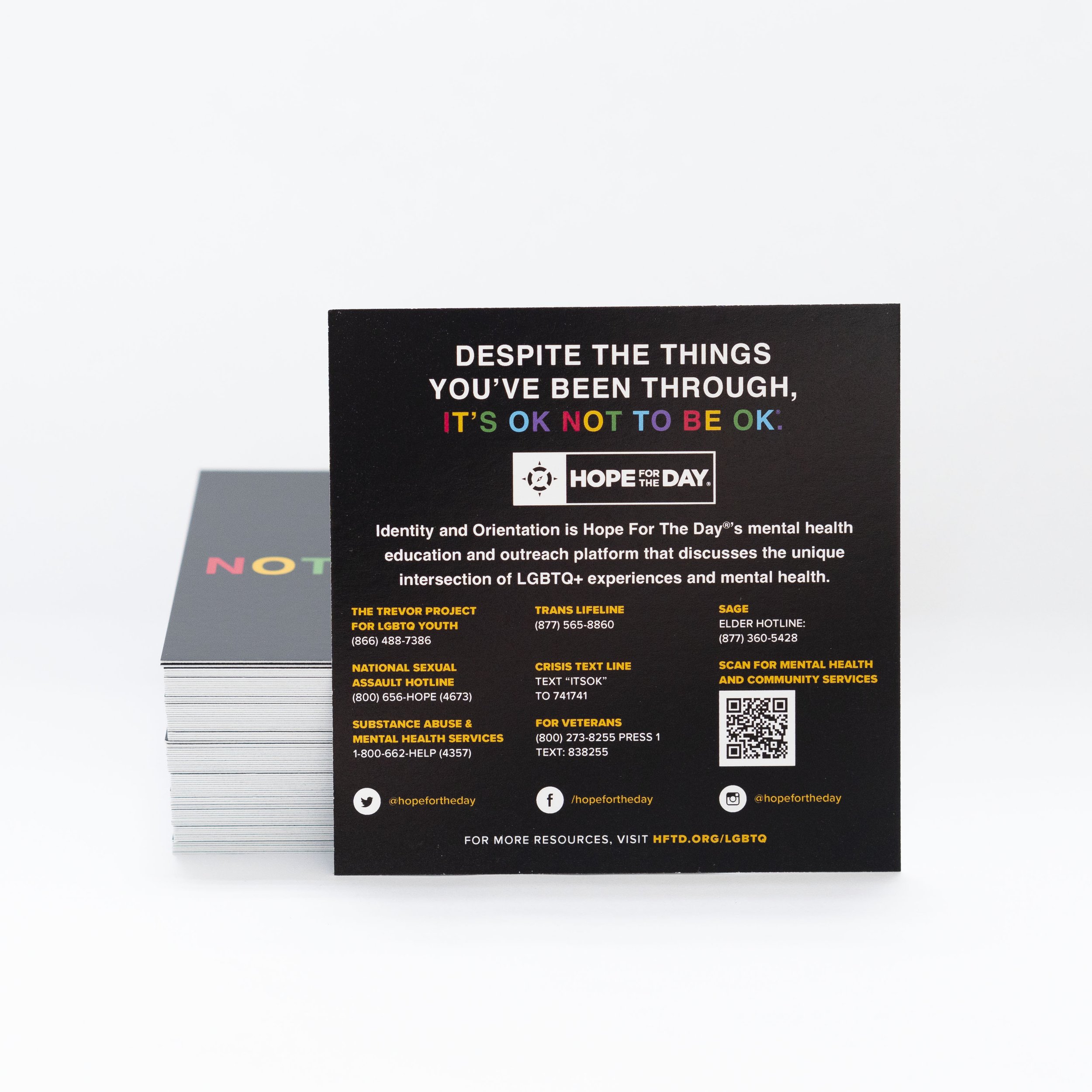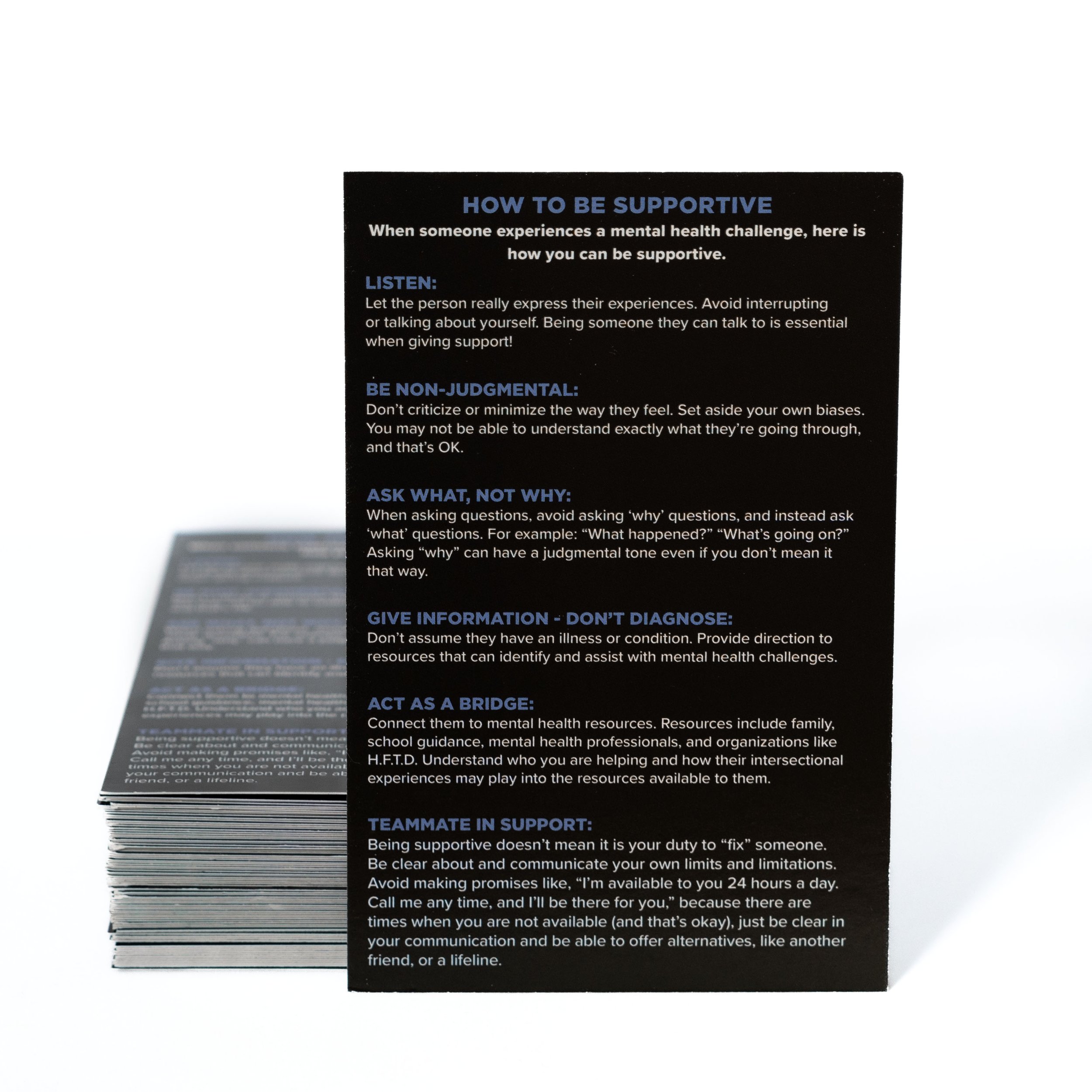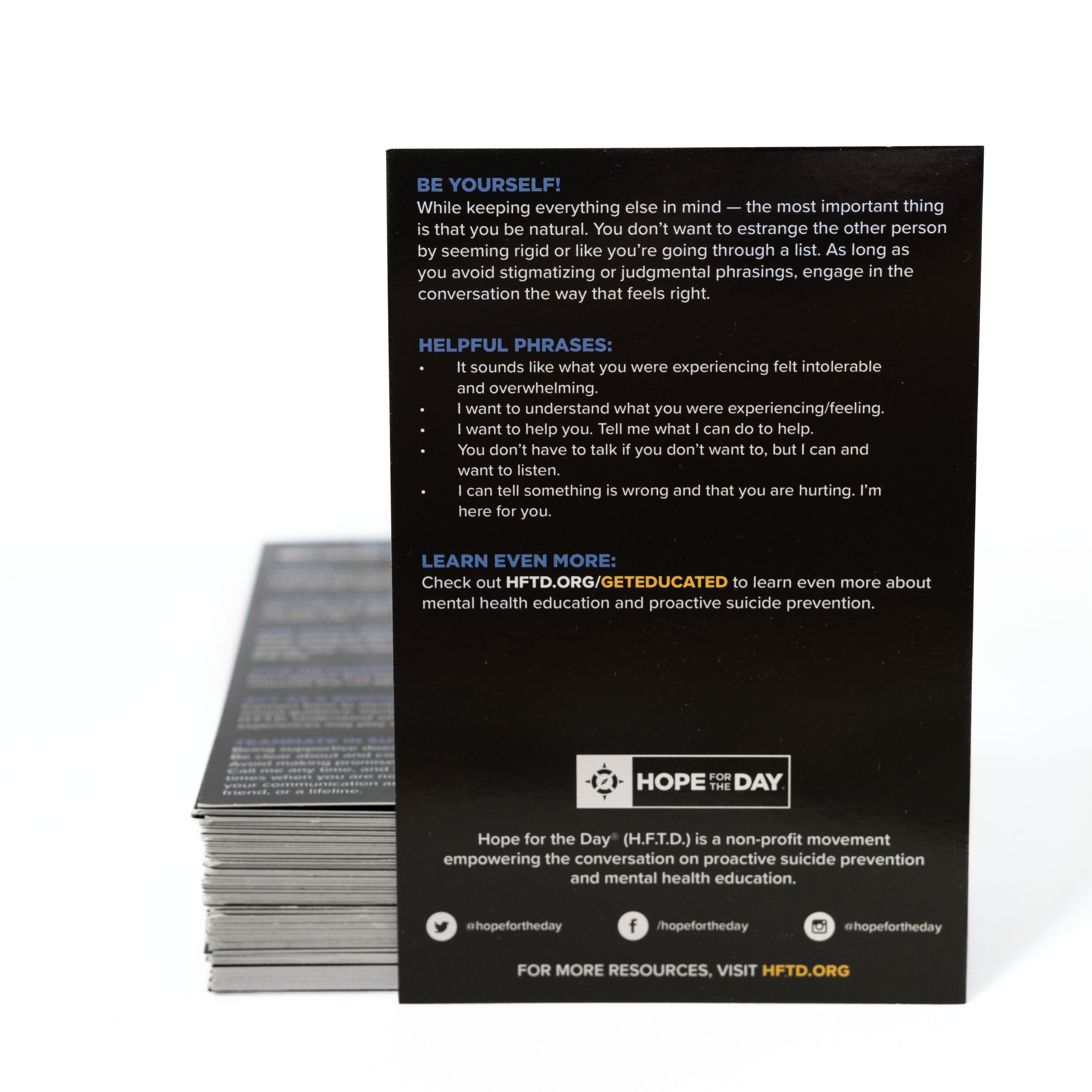"Understanding Non Suicidal Self Injury (N.S.S.I.) Quick Card" Conversation Cards
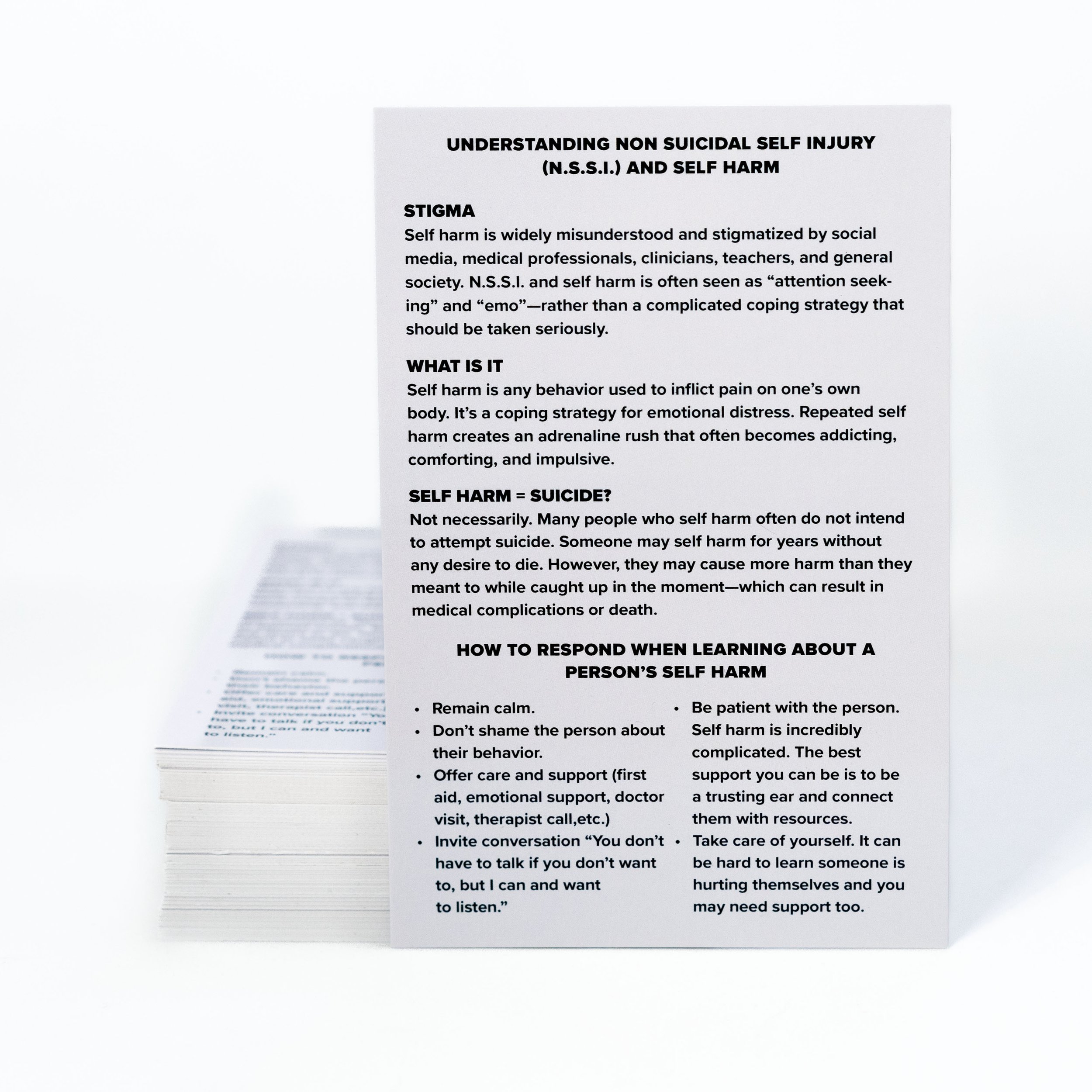
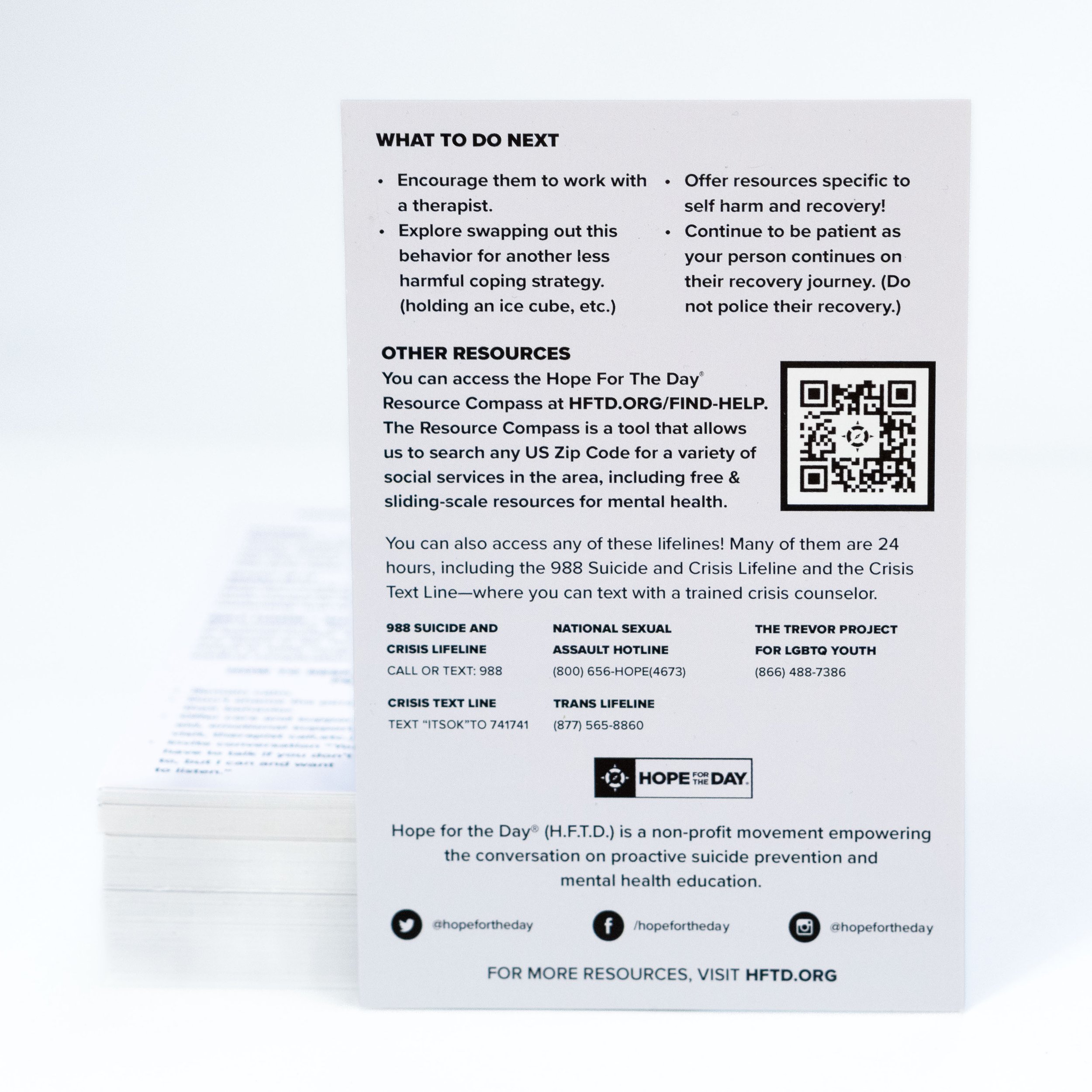
"Understanding Non Suicidal Self Injury (N.S.S.I.) Quick Card" Conversation Cards
Pack of our 4x6 Understanding Non Suicidal Self Injury (N.S.S.I.) Quick CardQuick Cards printed for distribution or display. These cards contain the following information:
Pack of our 4x6 Understanding Non Suicidal Self Injury (N.S.S.I.) Double Sided Quick Cards printed for distribution or display. These cards contain the following information:
UNDERSTANDING NON SUICIDAL SELF INJURY (N.S.S.I.) AND SELF HARM
STIGMA
Self harm is widely misunderstood and stigmatized by social media, medical professionals, clinicians, teachers, and general society. N.S.S.I. and self harm is often seen as “attention seeking” and “emo”—rather than a complicated coping strategy that should be taken seriously.
WHAT IS IT
Self harm is any behavior used to inflict pain on one’s own body. It’s a coping strategy for emotional distress. Repeated self harm creates an adrenaline rush that often becomes addicting, comforting, and impulsive.
SELF HARM = SUICIDE?
Not necessarily. Many people who self harm often do not intend to attempt suicide. Someone may self harm for years without any desire to die. However, they may cause more harm than they meant to while caught up in the moment—which can result in medical complications or death.
HOW TO RESPOND WHEN LEARNING ABOUT A PERSON’S SELF HARM
Remain calm.
Don’t shame the person about their behavior.
Offer care and support (first aid, emotional support, doctor visit, therapist call, etc.)
Invite conversation “You don’t have to talk if you don’t want to, but I can and want to listen.”
Be patient with the person. Self harm is incredibly complicated. The best support you can be is to be a trusting ear and connect them with resources.
Take care of yourself. It can be hard to learn someone is hurting themselves and you may need support too.
HOW TO RESPOND WHEN LEARNING ABOUT A PERSON’S SELF HARM
Encourage them to work with a therapist.
Explore swapping out this behavior for another less harmful coping strategy. (holding an ice cube, etc.)
Offer resources specific to self harm and recovery!
Continue to be patient as your person continues on their recovery journey. (Do not police their recovery.)
OTHER RESOURCES
You can access the Hope For The Day® Resource Compass at HFTD.ORG/FIND-HELP. The Resource Compass is a tool that allows us to search any US Zip Code for a variety of social services in the area, including free & sliding-scale resources for mental health.
You can also access any of these lifelines! Many of them are 24 hours, including the 988 Suicide and Crisis Lifeline and the Crisis Text Line—where you can text with a trained crisis counselor.
NATIONAL SUICIDE PREVENTION LIFELINE (800) 273-TALK(8255) *Now known as THE 988 LIFELINE - 988
CRISIS TEXT LINE - TEXT ‘ITSOK’ TO 741741
SUBSTANCE ABUSE & MENTAL HEALTH SERVICES - 1-800-662-HELP(4357)
NATIONAL SEXUAL ASSUALT HOTLINE - (800) 656-HOPE(4673)
FOR VETERANS - CALL (800) 273-8255 (PRESS 1) OR TEXT: 838255
TRANS LIFELINE - (877) 565-8860
THE TREVOR PROJECT FOR LGBTQ+ YOUTH - (866) 488-7386
QR CODE TO HFTD’S RESOURCE COMPASS LOCATED AT HFTD.ORG/FIND-HELP
Hope for the Day® (HFTD) is a non-profit movement empowering the conversation on proactive suicide prevention and mental health education.
